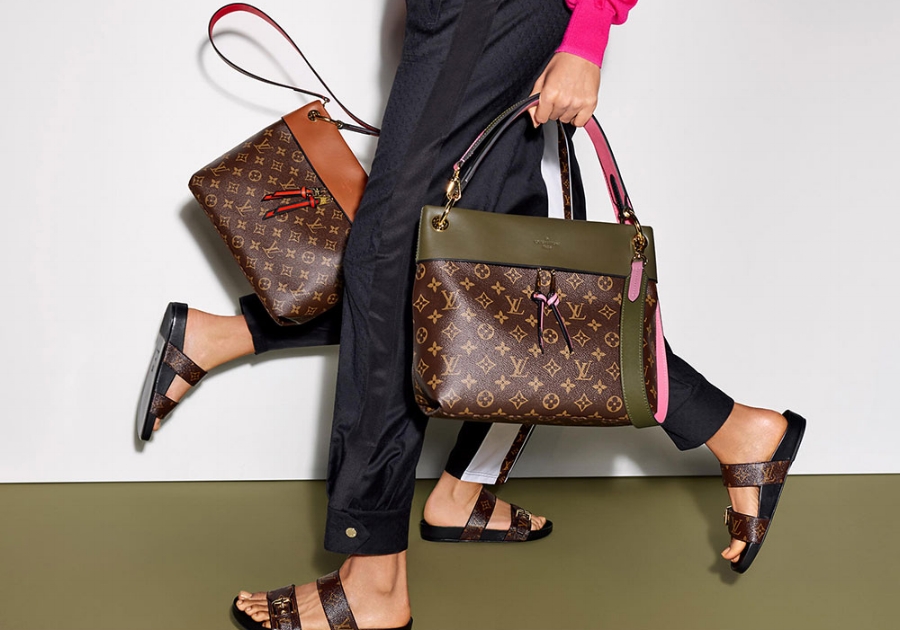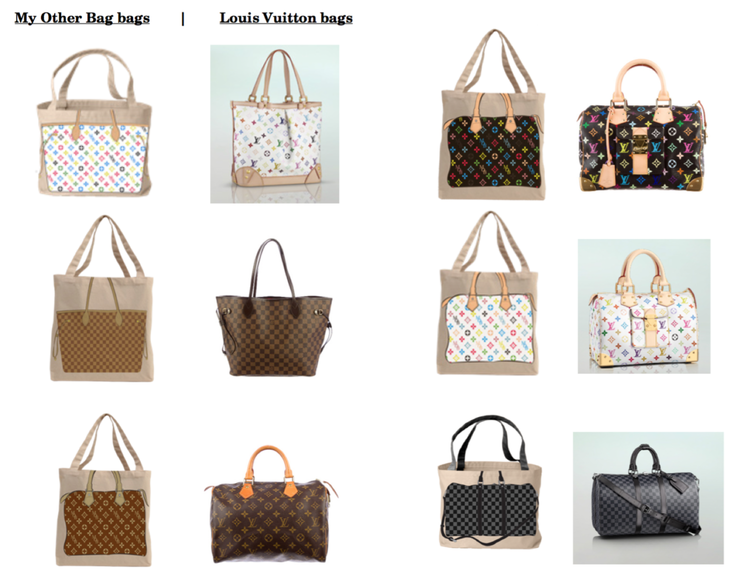
Louis Vuitton just lost one of the final rounds in its case against canvas tote bag-maker My Other Bag (“MOB”). As first reported by TFL in 2014, Louis Vuitton filed suit against MOB in the U.S. District Court for the Southern District of New York, alleging that the Los Angeles-based brand was not only infringing its federally registered trademarks and copyrights, but it was also diluting the “distinctive quality” of Louis Vuitton’s world-famous trademarks by slapping then on its inexpensive canvas tote bags.
MOB – a small Los Angeles-based brand known for its designer bag-on-a-canvas bag styles, which include Balenciaga, Proenza Schouler, YSL, Celine, and obviously, Louis Vuitton lookalikes – argued that it should be shielded from trademark and copyright liability, as its bags amount to parodies. And both the district court and the court of appeals agreed, prompting Louis Vuitton – the world’s most valuable luxury brand – to file a petition for writ of certiorari in July, asking the Supreme Court to hear the case.
According to Louis Vuitton’s Supreme Court petition, which came nearly three years after it first filed suit against MOB, the fashion house argued that it “has devoted more than a century to developing, promoting, and protecting trademarks that are universally recognized symbols of the company’s products and that constitute a guarantee of the products’ origin and quality.”

Louis Vuitton’s counsel asserted in the petition to the Supreme Court, “MOB sought to capitalize on the distinctiveness and positive public perception of Louis Vuitton’s marks by marketing otherwise-ordinary canvas bags bearing its famous marks on one side and the words ‘My Other Bag . . .’ on the other. In so doing, MOB created a risk that the public will no longer associate Louis Vuitton’s marks only with Louis Vuitton’s high-end products but will also associate the marks with MOB’s bags.”
“Permitting an entire business model premised on the exploitation of famous marks to sell knock-off products is flatly at odds with Congress’s intent to protect famous marks from dilution,” the petition further read.
Upholding the U.S. District Court for the Southern District of New York’s January 2016 ruling that MOB’s inexpensive canvas bags are, in fact, covered by the parody defense, the Second Circuit Court of Appeals ruled in MOB’s favor in December 2016. In refusing to grant Louis Vuitton’s appeal, without explanation of course, the Supreme Court has left intact the Second Circuit’s ruling that MOB’s bags are, in fact, permissible parodies.
Reflecting on the case earlier this year, MOB founder, Tara Martin, told TFL: “The toll this lawsuit has taken on not only the business but on me personally has been astronomical. This battle with LV has put me through an inordinate amount of financial and personal hardship all the while knowing their case was unreasonable.”
The case is not over entirely, though. The parties are currently having it out over the dollar amount of attorney’s fees that Louis Vuitton will have to pay up. Earlier this year, MOB demanded $800,000 in attorney’s fees due to the “need for greater deterrent to the bringing of weak cases because ‘aggressive and bullying enforcement tactics,’” seemingly likening the Paris-based brand to a troll (which in the legal world refers to an intellectual property-holding entity that tries to make money by threatening to sue (i.e. demanding a license fee from) anyone who could arguably be said to be using them without permission (“infringing them”)).
Louis Vuitton is fighting back, arguing that it is “simply incorrect” to compare the fashion house to a patent troll, as the brand is merely defending its valuable intellectual property rights.
As for the Supreme Court’s decision, My Other Bag’s counsel David Korzenik, said in a statement on Monday: “The outcome of this case was obvious, as all judges below have observed. Louis Vuitton has simply used it’s economic power to step on the free speech rights of those who don’t have their deep pockets.”










